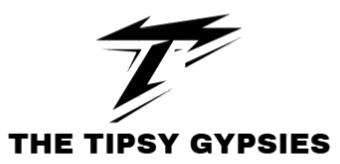Introduction to ai saas product classification criteria
Artificial Intelligence is reshaping the landscape of Software as a Service (SaaS) at an unprecedented pace. Businesses are increasingly turning to AI-driven solutions to streamline operations, enhance customer experiences, and make data-driven decisions. However, with this surge in innovation comes complexity. Not all AI SaaS products are created equal, making it essential for organizations to establish clear classification criteria. Navigating the myriad options can be overwhelming without a structured approach. By understanding key features and differentiating between various types of AI SaaS platforms, companies can better evaluate their needs and select the right tools. This blog delves into effective ai saas product classification criteria that will unlock clarity in your search for AI-first solutions tailored to your business goals.
Join us as we explore what makes an AI SaaS product stand out from the crowd and learn how you can leverage these insights for successful implementation! Finding the right MS Office product key is essential to activate and use Microsoft Office versions with full features.
Discover more insights that complement your read—dive into these related posts now!
Key Features of AI SaaS Products
AI SaaS products are revolutionizing how businesses operate. They come packed with features that enhance efficiency and decision-making.
For businesses and students, the MS Office 2024 product key offers the latest tools, while the MS Office 2021 product key is widely used for productivity and collaboration. One standout characteristic is automation. Tasks that once took hours can now be completed in minutes, freeing up valuable time for teams to focus on strategic initiatives.
Another key feature is advanced data analytics. AI algorithms sift through massive datasets to uncover trends and insights that human analysts might overlook. This capability allows companies to make informed decisions quickly.
Personalization also plays a crucial role. Older versions like the MS Office 2019 product key, Office 2016 product key, MS Office 2013 product key, and even the MS Office 2010 product key remain valuable for users with compatible systems. AI-powered systems adapt their offerings based on user behavior, ensuring a tailored experience that meets individual needs.
Scalability cannot be ignored either. These platforms grow alongside your business, accommodating increasing data loads without compromising performance or requiring extensive infrastructure changes.
Together, these features make AI SaaS products not just tools but essential partners in modern business strategies.
Understanding the Different Types of AI SaaS Platforms
AI SaaS platforms come in various shapes and sizes, catering to diverse business needs. Understanding these types can help organizations choose the right solution.
First, there are predictive analytics tools. Each version requires a genuine product key to unlock Word, Excel, PowerPoint, and other applications. Similarly, operating systems also depend on licensing using a valid Windows 11 product key or Windows 10 product key ensures smooth updates, enhanced security, and full functionality. Whether upgrading to the latest version or maintaining an older release, keeping an authentic product key is crucial for secure and reliable performance.
These platforms analyze historical data to forecast future trends. Businesses use them for informed decision-making. Then we have natural language processing (NLP) solutions. They enable machines to understand and interpret human language. Companies often leverage NLP for customer service chatbots or sentiment analysis.
Another category includes machine learning platforms that offer algorithms for specific tasks like image recognition or personalization. These tools empower businesses to automate processes effectively.
AI-driven automation software streamlines repetitive tasks, enabling teams to focus on strategic initiatives. This efficiency is vital in today’s fast-paced environment.
Each type serves a unique purpose while enhancing operational capabilities across industries.
Curious to learn beyond? Explore more captivating content crafted just for you!
Factors to Consider When Evaluating AI SaaS Products
When evaluating Ai saas product classification criteria, start by assessing the specific needs of your business. Each organization has unique requirements that must be met for optimal performance.
Next, consider the scalability of the solution. As your company grows, so should the software’s capabilities. A product that can adapt and expand with your changing demands is crucial.
Look into user experience as well. An intuitive interface ensures smoother adoption among employees, reducing training time and resistance to change.
Integration capabilities are another key factor. The ability to seamlessly connect with existing systems streamlines operations and enhances productivity.
Don’t overlook customer support options available from the provider. Reliable assistance can make a significant difference in resolving issues quickly and effectively when they arise.
Case Studies: Successful Implementation of AI SaaS in Businesses
Case studies reveal the transformative power of AI SaaS products across various industries. One standout example is a retail company that integrated an AI-driven inventory management system. This solution analyzed sales trends in real-time, reducing stockouts by 30%. As a result, customer satisfaction soared.
Another compelling case involves a healthcare provider utilizing AI SaaS for patient data analysis. The platform streamlined workflows and improved diagnostic accuracy by leveraging machine learning algorithms. Physicians reported faster decision-making capabilities, which ultimately enhanced patient care.
In the financial sector, a leading institution adopted an AI-powered fraud detection system. By analyzing transaction patterns, it decreased fraudulent activities significantly while improving compliance measures.
These instances showcase how adopting tailored AI SaaS solutions can drive efficiency and innovation within organizations across different sectors.
Challenges and Limitations of AI SaaS
AI SaaS platforms present significant potential, but they come with their own set of challenges.
Data privacy and security are major concerns. Businesses must ensure that sensitive information is protected during analysis and storage. Any breaches can lead to severe repercussions.
Integration issues often arise as well. Existing systems may not align seamlessly with new AI solutions, resulting in inefficiencies or extra costs for customization.
User adoption can be another hurdle. Employees might resist transitioning to an AI-driven approach due to a lack of understanding or fear of job displacement.
Moreover, the algorithms behind these services aren’t infallible. They can produce biased results if trained on skewed data sets, leading to poor decision-making.
Ongoing maintenance and updates require resources that some organizations may not have readily available. This creates a barrier for smaller businesses looking to leverage AI technology effectively.
Conclusion: Selecting the Right AI SaaS for Your Business Needs
Choosing the right AI SaaS platform can significantly influence your business’s success. The classification criteria help in understanding what to look for, making the selection process more straightforward.
As you navigate through various options, keep your specific needs and goals at the forefront. Consider how each product aligns with your operational requirements and whether it offers features that enhance productivity or efficiency.
Evaluating AI capabilities should be a priority. Look into machine learning functionality, data processing power, and user experience design when assessing platforms. Additionally, don’t overlook customer support and integration capabilities with existing systems.
The insights from case studies highlight how businesses have successfully implemented these solutions. They underscore the potential benefits while also providing real-world context to guide decision-making.
Understanding challenges is equally important; not all platforms will fit seamlessly within every organization’s framework. Anticipate potential limitations as part of your strategic planning process.
Selecting an AI SaaS solution requires careful consideration of both current needs and future scalability. By applying relevant classification criteria throughout this journey, you’ll place yourself in a stronger position to make informed decisions that align with your long-term vision.
Don’t miss our top picks! Check out this featured post making waves today!






